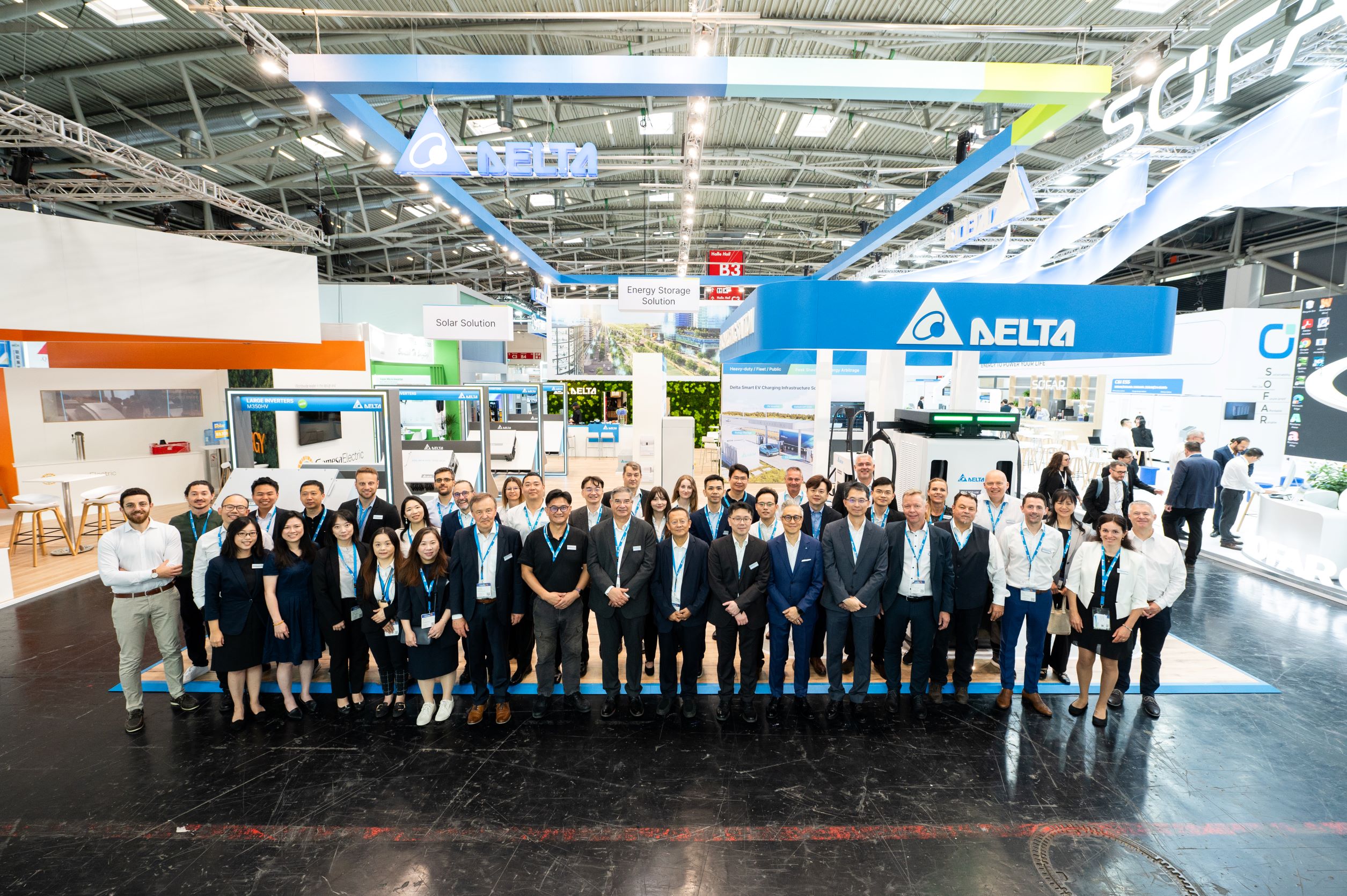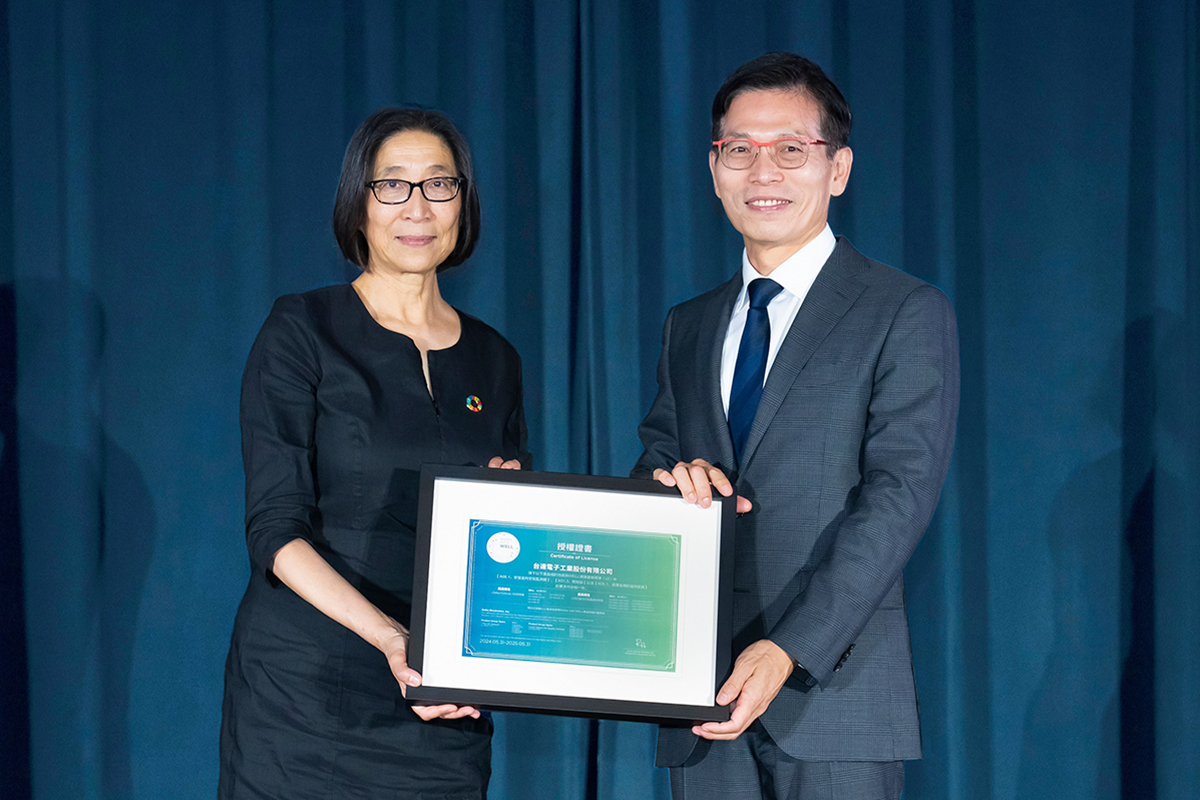Recently, Delta demonstrated how it is at the forefront of realizing a sustainable future through its latest innovations in EV charging, photovoltaic (PV) inverters, energy storage systems, and energy management systems at Smarter E Europe 2024.
"The energy transition presents significant challenges for utilities, particularly in managing the variability of renewable energy sources and maintaining grid stability," states Andreas Hoischen, Senior Director of the Photovoltaic Inverters Business Unit at Delta EMEA. "At Delta, our advanced PV inverters and comprehensive energy storage solutions are designed to optimize solar energy generation and ensure efficient power integration into the grid. Our innovations help utilities enhance grid reliability, effectively balance supply and demand, and achieve a stable, continuous power supply."
"The rapid rise of e-mobility is significantly increasing energy demand and grid imbalance," explains Vincent Lin, Vice President of E-Mobility & Smart Energy Solutions Business Development at Delta EMEA. "Delta's Smart Energy Infrastructure Solution is designed to address these challenges by integrating renewable energy source, optimizing energy consumption, and supporting the growing need for high power charging. Our comprehensive energy infrastructure solutions promote clean energy and support sustainable and efficient operations for utility, commercial, and industrial sectors." Delta unveils smart energy infrastructure solutions at Smarter E Europe 2024
Delta unveils smart energy infrastructure solutions at Smarter E Europe 2024
Utility and grid energy infrastructure solutions
Delta’s Utility and Grid Energy Infrastructure Solutions maximize solar revenue and relieve pressure on the power grid caused by imbalances in supply, demand, and unexpected events, thereby improving the reliability and stability of the power supply. The new M225HV and M350HV Solar Inverters supporting up to 1500 VDC and 800 VAC with a peak efficiency of 99%. The PCS3450 MV Skid, Power Conditioning System (PCS) with MV transformer, suited for utility-scale energy storage applications, offers efficiency and flexibility. The LFP battery container, tailored for megawatt-scale energy storage applications, is designed to address challenges ranging from rising construction costs to limited space and safety issues.
 Delta demonstrated its latest innovations in EV charging, PV inverters, energy storage systems, and energy management systems. The LFP battery container showcased its product features innovatively through models and videos, becoming a highlight of the booth.
Delta demonstrated its latest innovations in EV charging, PV inverters, energy storage systems, and energy management systems. The LFP battery container showcased its product features innovatively through models and videos, becoming a highlight of the booth.
Commercial and industrial energy infrastructure solutions
By seamlessly integrating EV charging, PV systems, energy storage, and energy management, Delta’s offerings ensure optimal energy utilization, optimizing both CAPEX and grid efficiency. For small-scale applications such as commercial malls, offices, and research centers, Delta's SKID-based Plug-and-Play Energy Storage System (ESS) is the ideal solution. For large-scale applications such as factories, Delta offers the PCS1500. It provides power conversion from 1000 to 1750 kVA.
Smart EV charging infrastructure solutions
Delta offers a comprehensive suite of EV charging solutions. Amidst the rise of high-power charging needs and challenges in land acquisition for EV charging operators, the recently launched UFC 500 ultra-fast EV charger is an ideal solution due to its remarkable power versus footprint ratio. It is designed for public and heavy-duty applications. Through integration with Delta’s EV charging management system, DeltaGrid® EVM, to regulate energy consumption and incorporate an energy storage system, it significantly reduces pressure, increase flexibility and stability on the grid. This powerful combination exemplifies the perfect fusion of EV charging and smart energy management solutions, excelling in performance and efficiency to fulfill high power charging requirements.  Delta's Smart EV charging infrastructure solutions exemplifies the perfect fusion of EV charging and smart energy management solutions, excelling in performance and efficiency to fulfill high power charging requirements.
Delta's Smart EV charging infrastructure solutions exemplifies the perfect fusion of EV charging and smart energy management solutions, excelling in performance and efficiency to fulfill high power charging requirements.















